“We are tired of this life and wish for death,” Ahmad Alnajjar from Gaza’s Khan Yunis tells Geo.tv, describing his year-long ordeal as Israel’s relentless onslaught on the besieged enclave continues with full force.
Around 114 deaths and more than 260 people are injured daily in Gaza, the enclave which no wonder is called “hell on Earth”, as a modern army continues to bomb civilian areas on the pretext of targeting Hamas fighters.
In retaliation to the October-7 Hamas-led attack, Israeli bombing has damaged or destroyed more than half of Gaza’s homes, and nearly 85% of school buildings, while the strikes also left more than half of the 36 hospitals partially functional — at a time when thousands need medical attention.
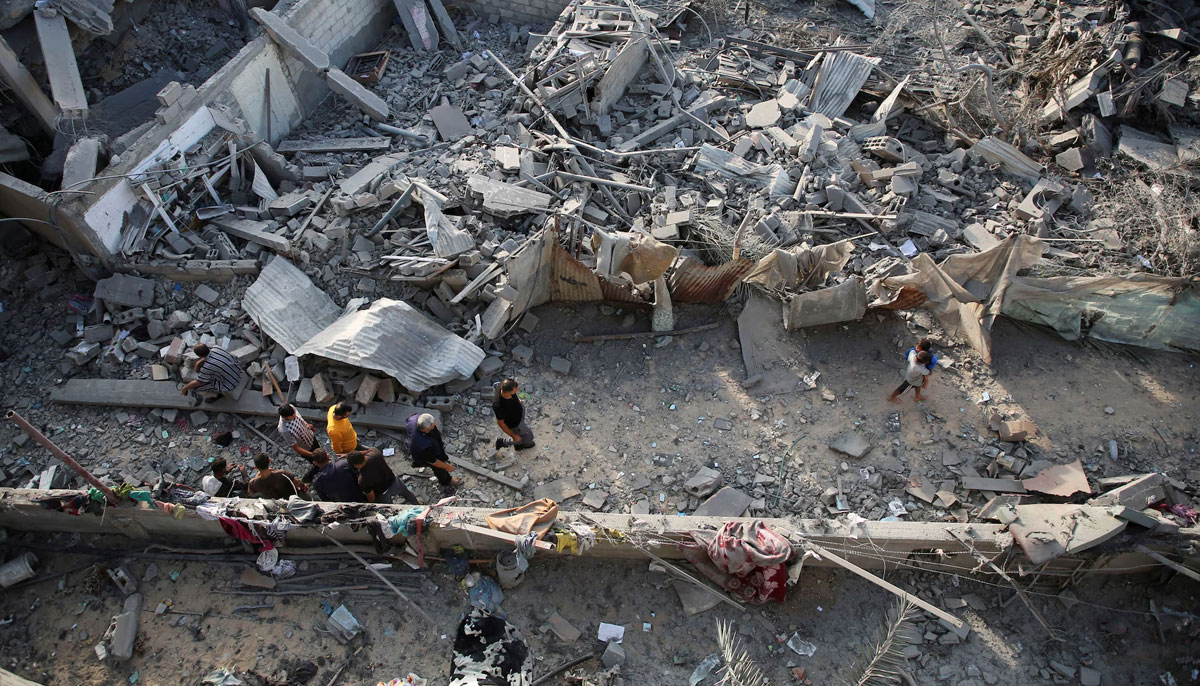
If we compare the death toll, Hamas killed fewer than 1,200 people in Israel, while Israel has killed more than 41,800 Gazans. This translates to around 34.9 times or 3,491.67% more deaths caused by Israeli forces, with no apparent remorse, as the war continues with no ceasefire in sight.
Talking to Geo.tv through Instagram, using a translator app, Ahmed said his family of nine was currently huddled in a make-shift shelter as they were displaced due to the Israeli bombing.
“We live in a small tent. [We’re witnessing] a war of extermination, starvation, and death,” Alnajjar said, lamenting: “Gaza is hell. We die 1,000 times every day from bombing and fear. Our life here is hell.”
‘Please, stop!’
While one might hope that the war would come to an end after a year of deadly onslaught, some Gazans are not optimistic about the conflict’s resolution in the near future.
Anas Rafat Hamza Salah, who also lives in Khan Yunis after his family was forced to flee the Al-Shatei camp, said he wasn’t hopeful of the war coming to an end and feared further catastrophes ahead.
“I thank Allah that my family is fine. However, if this war continues, the probability of our injury or death may reach 90%, and this is applied to all of the Gaza population.”
Explaining why he foresees more deaths, Salah said that apart from the Israeli bombing, there was near to no medical facility available for the Palestinians.
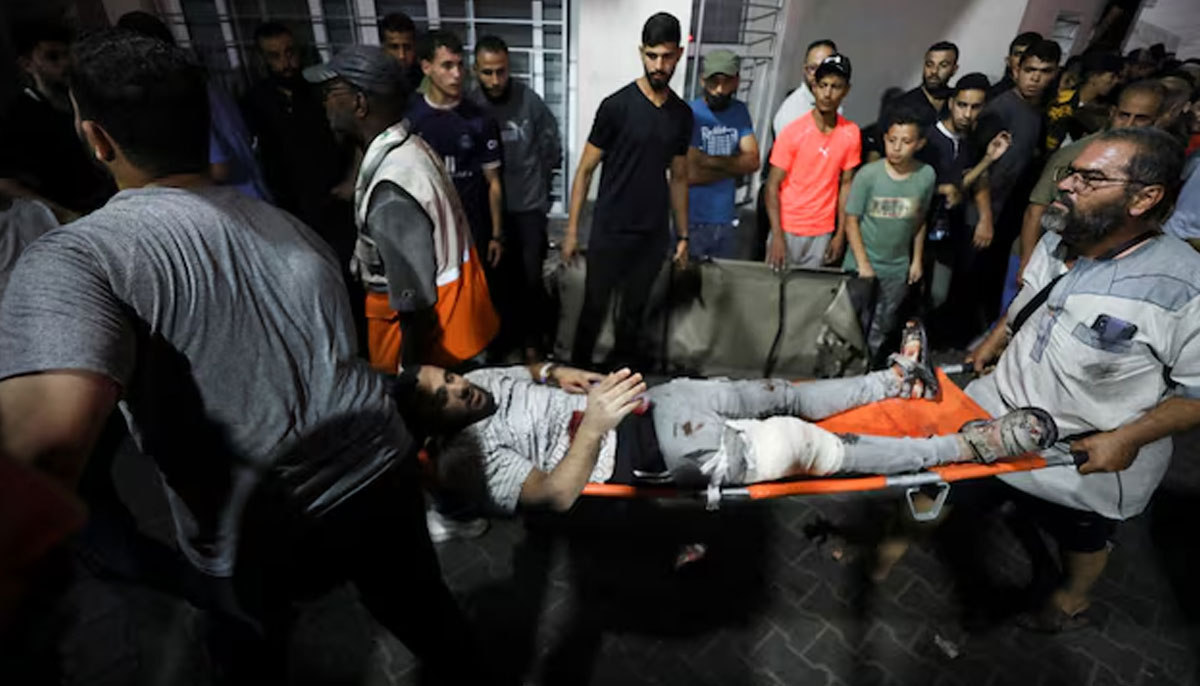
The healthcare situation in Gaza remains dire and worsens each day. Thousands of children have already undergone limb amputations, with more expected to face the same outcome. Infectious diseases are spreading unchecked, and patients with severe burns and maggot-infested war wounds are left untreated due to a severe shortage of medical facilities. The crisis has left Palestinian doctors and nurses utterly exhausted.
“As a result of the Israeli bombing, most of the buildings were destroyed which forced us to open pharmacies in tents. This makes medicines susceptible to damage due to high temperature,” he lamented.
A major reason for the medical crises is also the Israeli government’s longstanding blockade and intensifying attacks on health facilities.
“As a part of Israel’s policy, they prevent the entry of many medicines and cleaning materials to Gaza that exacerbates the situation and leads to the spread of dangerous diseases,” the 25-year-old pharmacy graduate said.
“Please, stop this genocide now,” Salah appealed.
‘From displacement to displacement’
Diala Yousef, who lived in central Gaza and now resides in Rafah, told Geo.tv that there was no safe place in the besieged enclave as Israel was bombing everything — houses, tents, hospitals.
As her home has been destroyed and she now lives with her family of nine in a tent, Diala said: “The tent does not protect against the cold of winter or the heat of summer. We spend our lives from displacement to displacement.”
Just like all Gazans who spoke to Geo.tv, she also said that the war might not stop soon and pleaded for the massacres and genocide to stop.
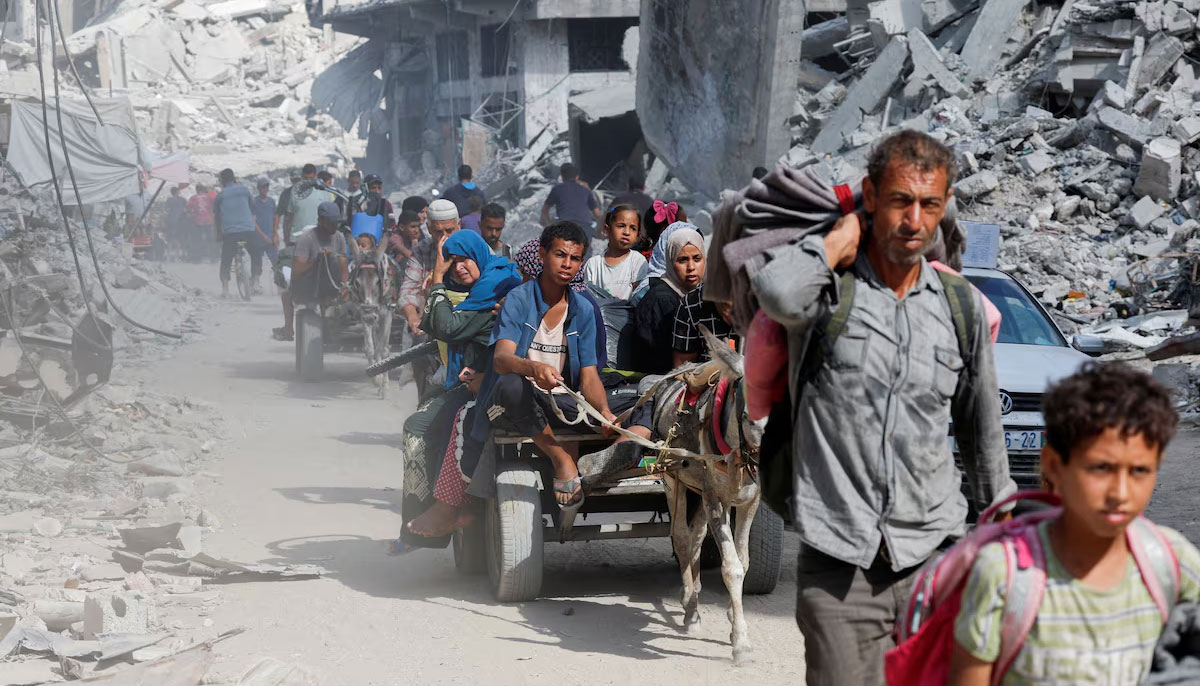
“We are innocent civilians. We are a family with no source of income,” she lamented, as not only her family but hundreds of thousands of Gazans lost their livelihoods due to the war.
Basic commodities are also out of their reach. In a post on Instagram, Diala also wrote that it was a luxury for her people if they got a bottle of cold water in the scorching Rafah heat.
Talking about the misery further, she said: “My father had a stroke that affected his speech and movement My mother had 16 laparoscopic operations on her abdomen, and until now we do not know the cause of the pain.”
‘Group of war extremists’
Osama Aref Nazzal, a journalist based in the occupied West Bank’s Jenin city, told Geo.tv that the war will escalate further and claim more innocent lives in Gaza and the rest of occupied Palestine.
“Israel has nowadays a group of war extremists who give calm no chance, [enjoy] full American support, and dead silence by the Arab world,” the 49-year-old said.
In the 365 days of war, there hasn’t been any statement from a prominent Israeli leader that the war should stop, rather, they are adamant about wiping out Hamas, come what may.
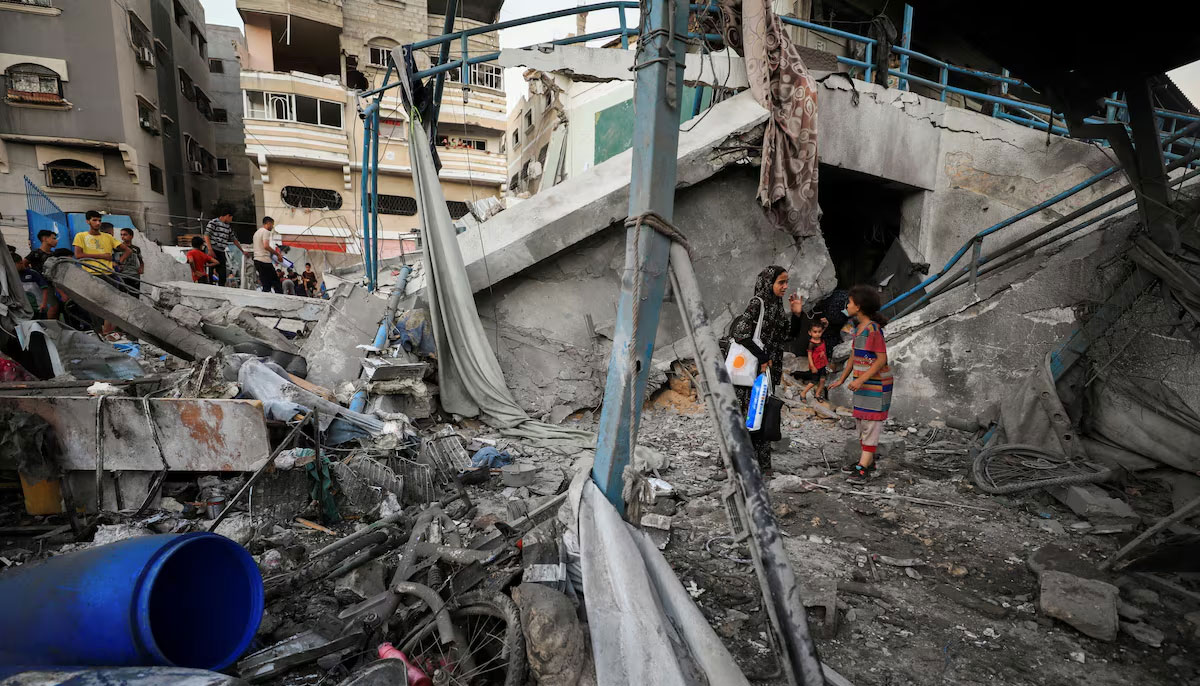
“Every Palestinian family has been affected if not physically, psychologically. Watching Gaza children being cut into pieces is a scene that never leaves the Palestinians memory.”
He stressed that before the October 7 attack, Palestinians did everything possible for peace, but Israel refused that.
“The world is leaderless and all that world officials care about is their own fiscal and regimes’ interest, disregarding the very concept of humanity. They all work to satisfy the American zionist elites to get fiscal support.”
‘There is nothing called middle way’
Hamas spokesperson Qadoomi, while speaking to Geo.tv, said that Hamas and the Palestinian resistance were standing in the field after exhausting all diplomatic solutions today.
“After one year I can tell you that there is a relative winning in the ground relative winning at the diplomatic level today. Israeli diplomats are isolated,” he said, recalling the walkout at the United Nations by leaders of several nations during Israeli Prime Minister Benjamin Netanyahu’s speech.
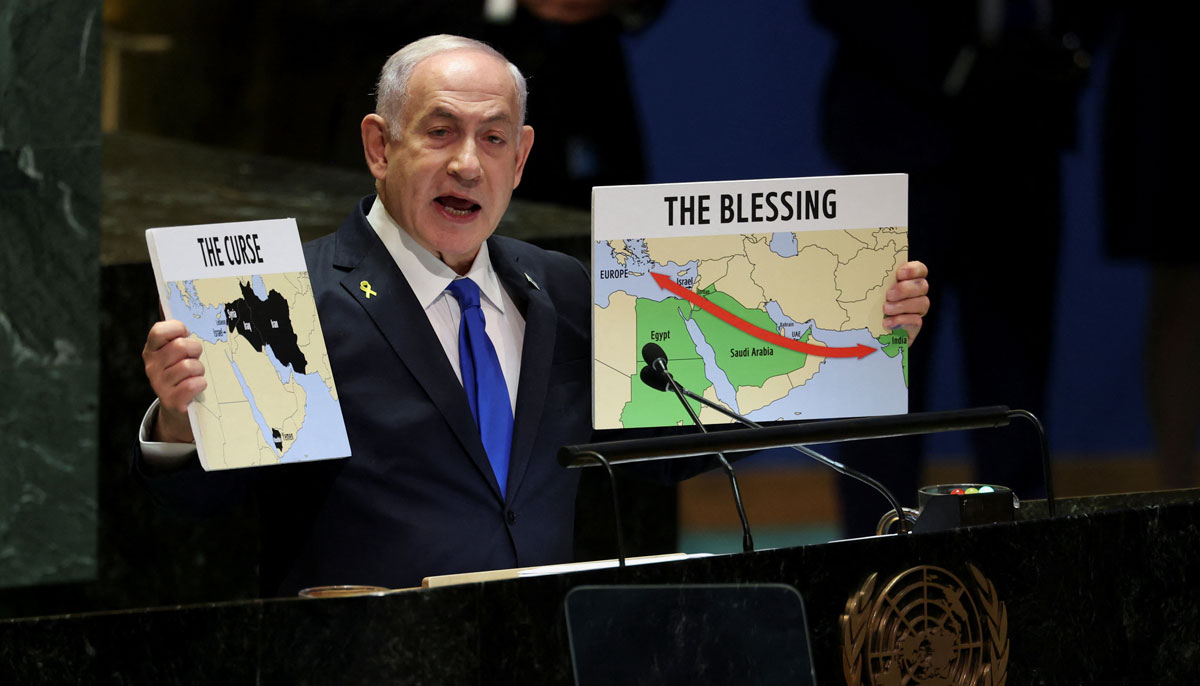
The spokesperson of the group said things were changing gradually as people around the world were speaking in support of Palestinians.
“The only way left for us is to move with the resistance theory. Our people are with us and handing out the sacrifice attitude of our families inside Gaza. They give us all more energy. Our leaders, they are sacrificing their own souls, their own families.”
However, Qadoomi noted that Israeli society was moving towards extremism and the popularity of Netanyahu had increased following the killing of Hamas and Hezbollah chiefs.
He said: “They now believe that “killing more Palestinians [is] making us safer, and that is very dangerous to the and threatening to the security and stability of the region.”
The writer is a staffer. He can be reached via emai: [email protected]
Header and thumbnail image via Geo.tv
